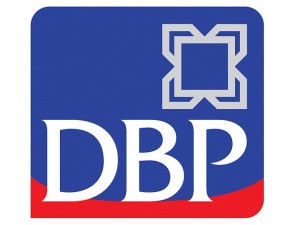DBP hit with P717M loss in ‘wash sales’

An investigation by state auditors has uncovered a series of illegal bond-trading activity at the state-owned Development Bank of the Philippines (DBP) last year that resulted in the government bank losing more than P700 million in the course of these so-called “wash sales”—which bank officials claimed were done to avoid further losses.
A report made by the Commission on Audit’s (COA) supervising auditor showed the presence of 28 transactions made between Jan. 29 and March 3, 2014, involving 20- and 25-year fixed rate treasury notes (FXTNs) issued by the Philippine government totaling P14.3 billion.
More importantly, the COA auditor pointed out that every single sale during this period was made to a single counterparty, First Metro Investment Corp., the investment banking arm of the Metrobank group. The securities were then bought back by DBP on the very same day they were sold, with many transactions suffering millions of pesos in losses.
“The same government securities series were purchased on the same day at the same price under [DBP’s] hold-to-maturity account when these were sold at a loss, which may give us an impression of unsound trading practices leading to market manipulation,” the COA report said.
When the series of trades were completed, the government financing institution had booked actual losses of P717 million.
In general, banks book their fixed-income securities in either their “hold-to-maturity” account (to be held until they mature and not subjected to periodic repricing to recognize paper gains or losses) or their “available-for-sale” account (to be used for short-term trading activities and are required to be revalued regularly to reflect paper gains or losses).
Rules of the Bangko Sentral ng Pilipinas and the Securities and Exchange Commission (SEC) prevent financial institutions from shifting their securities holdings freely from one book to the other to prevent the illegal practice of artificially making their finances look better than they are by either showing bigger gains or hiding losses.
Some banks try to go around the restriction by using a process—also prohibited by regulators—known as a “wash sale” wherein the securities are sold to another financial institution and bought back at a pre-agreed price, usually on the same day or shortly thereafter, to make auditors believe that these are new purchases rather than merely transfers meant to make their books look better.
“Wash sales” are illegal because they distort open market dynamics, artificially increasing the trading volume of the transacted securities even when there is no real change in beneficial ownership at the end of the day. “Wash sales” also taint benchmark interest rates, especially for illiquid securities, of the market because unsuspecting third-party financial institutions will be misled into thinking that large transactions were executed at a given price or interest rate, hence leading them to believe that these rates are accepted and acknowledged by a number of market participants, when in fact only one party is involved in the buying and selling at the end of the day.
In the case of DBP, the COA auditor observed that “although the board of directors [of the bank] approved the transfer of the booking from available-for-sale to hold-to-maturity, the method used for the transfer is not normal as it caused (sic) the government P717.07 million [in losses].”
Moreover, the state auditor pointed out that DBP has a very good liquidity position with an average cash balance of P43.8 billion during the period in question. “Hence, there is no reason for unloading the subject government securities,” the report read.
In response to the COA report, DBP’s financial resource sector head Susan Prado reasoned that the trades were done in good faith and that “the apparent losses should be appreciated in the context of the strategy to avoid a bigger unrealized loss on the bank’s portfolio.”
